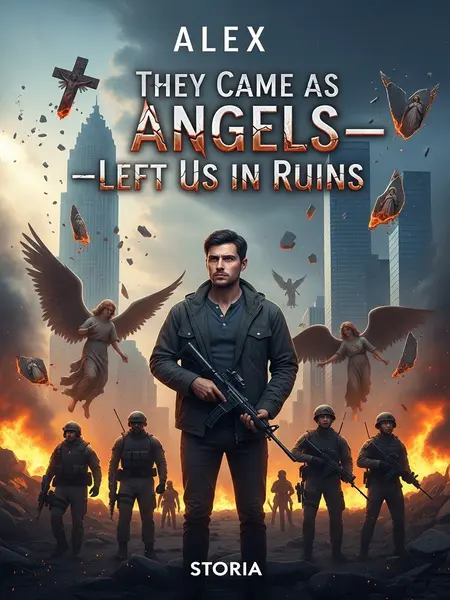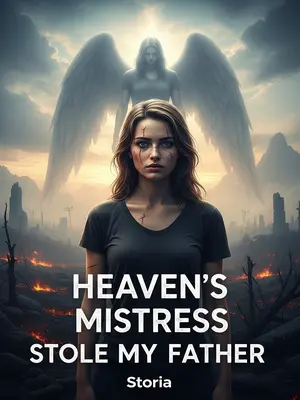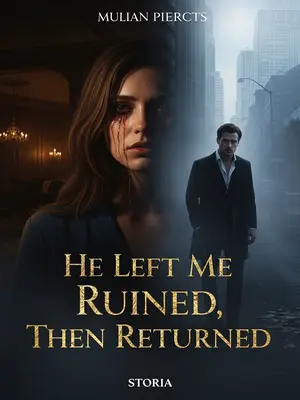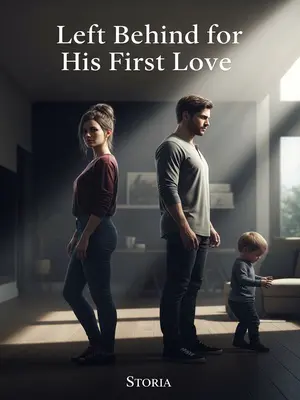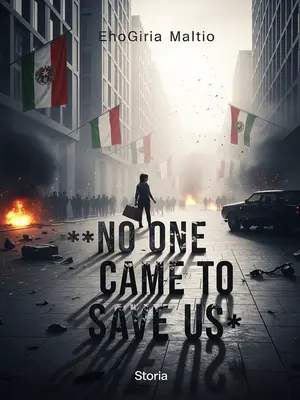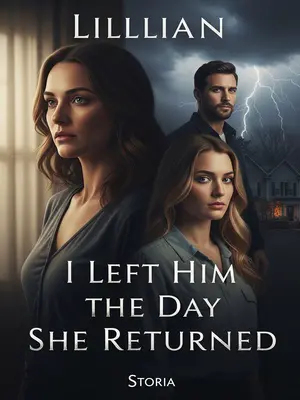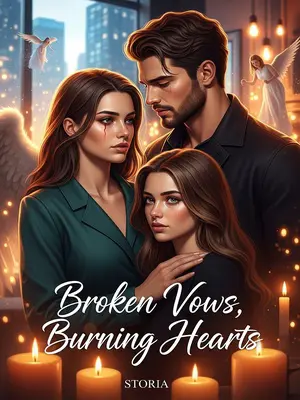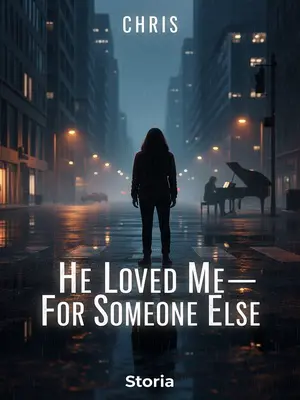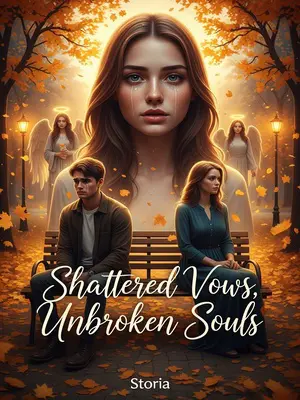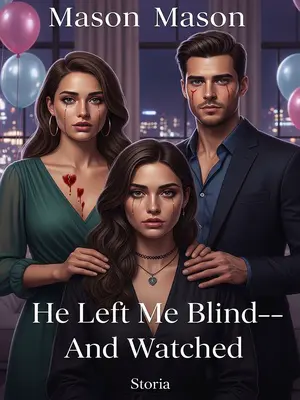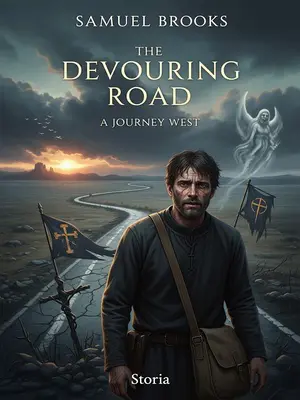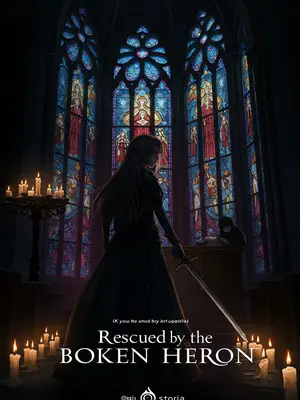Chapter 1: The Day Angels Turned Red
The whole world watched, live on TV, as that winged being lifted the Archbishop to his feet—then, in one horrifying motion, bit off his head.
For a split second, it felt like time itself froze. Every camera feed stuttered, anchors stammered in disbelief. I felt a chill—cold, animal fear—crawl down my spine. On every screen, blood dripped from the angel’s mouth—red as any murder, a brutal period at the end of the world.
They are not saviors.
They have come to exterminate humanity.
I was sprawled out on my couch, glued to the TV news. This year was just disaster after disaster—the anchor stumbling through the teleprompter while the ticker at the bottom spat out headline after headline, each one making my gut twist tighter.
My old, ratty blanket was tangled around my legs. The remote had vanished somewhere into the couch cushions, but I couldn’t care less. My phone kept buzzing every few minutes with new updates, but I couldn’t look away from the screen. Even my cat, Luna, was curled up tight in the far corner, as if she could sense something was wrong with the world.
The coast near Los Angeles got slammed by the worst red tide anyone had ever seen: thousands of square miles of ocean turned blood-red, the surface choked with dead fish, the stench rolling in and strangling the city. In Brasília, millions of horned frogs swarmed the streets, croaking day and night, shutting the whole place down. Jesus, it never ended.
The TV cut to helicopter shots over LA—choppers skimming the blood-red coastline, beaches empty as a ghost town. Reporters in masks and goggles tried to talk through the stench. The Brazil clips looked like something out of a fever dream—frogs bouncing through abandoned malls, croaks echoing off marble. Even the cops had given up trying to clear them. What next, locusts?
Then came the epidemic in New Delhi—a virus spreading through fleas and lice, CDC scrambling to keep up. Kinshasa was drowning in flies, sanitation gone, pest control guys saying they’d never seen anything like it. Ulaanbaatar got hit with a livestock plague—millions of cattle and sheep dead in days. Mongolia couldn’t even bury them all; they had to beg for help. What the hell was going on?
Footage rolled of CDC scientists in full hazmat, faces set like stone behind the glass. In Kinshasa, the camera panned over trash heaps crawling with flies, workers in faded jumpsuits spraying chemicals like it would help. Mongolia was even worse—fields just littered with animal corpses, bulldozers pushing them into mass graves. I almost wished it was just a movie.
In Nairobi, the poorest folks broke out in these awful blisters on their backs—when they popped, pus and blood oozed out, and the smell made people gag. In Jakarta, hail the size of baseballs crashed down from the sky, wrecking cars and sending hundreds to the hospital. Seriously, what next?
The anchor’s voice cracked as she showed cell phone videos—people in Nairobi huddled in alleys, clutching their backs, some sobbing. In Jakarta, the streets were lined with busted windows and dented cars, doctors in scrubs sprinting between tents. Some little kid held up a hailstone for the camera, his hands shaking so hard I thought he’d drop it.
Then a once-in-a-century locust plague hit the Midwest. Farmers grabbed whatever they could—tractors, flamethrowers, you name it—to fight off the insects and save what crops they could. The government cracked open the grain reserves to keep the market steady. Meanwhile, Mount St. Helens blew its top again, burying Seattle in ash for three days. No sun, over two thousand dead, who knows how many missing. Other countries sent warships to help evacuate their people. It just kept coming.
The locusts rolled in like a living black tide over the cornfields. Farmers stood on their tractors with flamethrowers, faces set in grim lines. The Seattle footage looked straight out of the end times—abandoned cars on the highway, ash swirling in headlights, people stumbling through the gray haze with scarves over their faces. What next, frogs raining from the sky?
Leave it to the experts to spot a pattern. Turns out, nearly all these disasters matched up with the legendary Ten Plagues. Churches everywhere were packed—Christians convinced God was warning us, everyone repenting like it might buy forgiveness.
Sunday services overflowed—lines around the block at St. Mary’s, people clutching rosaries and Bibles, some kneeling on the sidewalk, some just staring up at the clouds. News ran interviews with teary-eyed preachers and grandmas whispering prayers, certain the end was here.
I rolled my eyes at all this. As an atheist, I figured it was just coincidence. Earth’s always been wild—disasters happen. No need for divine explanations.
Still, my hands shook as I reached for another can of beer. The world didn’t need angels or devils to go to hell. Sometimes, bad luck and human stupidity were enough.
In response, the Vatican called for a worldwide prayer ceremony—broadcast live so believers everywhere could repent together.
Every major network ran the feed—CNN, Fox, even Colbert cut in for a minute. My phone blew up: group chats with friends making jokes, others asking if I wanted to watch together, like it was the Super Bowl or something.
On the day of the ceremony, the Archbishop wore these incredible robes, standing in the center of St. Peter’s Basilica, holding the Bible and listing humanity’s sins—war, pollution, greed, all of it. The faithful below held candles, faces full of hope and fear, desperate for forgiveness.
The camera lingered on the Archbishop’s face. Sweat shone on his brow as he spoke of greed and violence, his voice echoing through the marble halls. The crowd below swayed, candles flickering like a field of stars. Some people sobbed, clutching each other, prayers rising in a low, desperate hum. My stomach twisted.
Suddenly, a beam of light cut through the clouds. A winged man descended, surrounded by a halo of blinding light.
The air crackled, cameras jerking upward. For one heartbeat, the world froze—no one dared breathe. It was sacred. Or maybe just terrifying.
He looked gentle, elegant, like he’d been sculpted by Michelangelo. White robe, golden sword, the whole package—like he’d stepped out of a Renaissance painting. The angel everyone expected.
Light shimmered off his wings, each feather catching the glow. His face was flawless, sharp and smooth, eyes burning with something unearthly. The sword in his hand was beautiful and deadly, the kind of thing you’d see behind glass in a museum and wonder who could ever use it.
Newsrooms lost their minds: angels were real.
Social media blew up—#AngelOnEarth trending in seconds. Talk show hosts fumbled their lines, cable news panels freaked out. My phone buzzed nonstop: "Are you seeing this?" "Is this for real?" "Dude, what the hell is happening?"
I almost dropped my beer. The Archbishop, shaking, knelt and kissed the angel’s toes.
I watched, stunned, as the old man pressed his lips to the marble at the angel’s feet. The gesture felt ancient, medieval—like something out of a dusty storybook. The crowd gasped, a few in the pews following suit, dropping to their knees.
Through the world’s cameras, the angel helped the Archbishop up.
The angel’s hands looked gentle as he lifted the old man—like he was helping a child. For a split second, it was a painting of mercy—until it wasn’t.
Then its mouth twisted into a nightmare maw and, in a single bite, tore off the Archbishop’s head.
The feed didn’t cut away fast enough. I saw the flash of teeth, the spray of blood, the Archbishop’s body collapsing like a puppet with its strings cut. Someone screamed—on TV, or maybe in my own apartment. I honestly couldn’t tell.
It was no savior.
It had come to exterminate humanity.
Those words hammered in my skull, louder than the TV. I felt sick. For a second, I thought I’d puke right there on the carpet.
Everyone watching just froze. The angel chewed the head, blood dripping from its mouth.
The basilica was dead silent, except for the wet, horrible sound of chewing. The camera zoomed in, and I wanted to scream at it to stop. Blood dripped down the angel’s chin, staining his perfect robe. Someone in the crowd fainted. The candles shook, as if the whole building shivered.
Then someone screamed. Chaos exploded. The angel raised its longsword and slashed into the crowd—flesh and blood flying, those pure white wings streaked with red, somehow making it even more terrifying.
People stampeded for the exits, tripping over pews and each other. The angel moved with impossible speed, sword flashing in huge arcs. Blood sprayed across the marble, painting the walls. The screams grew into a hurricane, echoing off the dome.
Countless angels rained down from the sky, attacking everyone below.
The live feeds cut to chaos outside—dozens, then hundreds of winged figures dropping from the clouds, wings snapping open like parachutes. They landed in the crowds, swords drawn, moving with a deadly grace. St. Peter’s Square turned into a slaughterhouse.
At the same time, in Rome, Paris, London, Sydney, Brussels, Vienna, New York, Warsaw, Prague, Madrid—almost every major city in the Christian world—swarms of sword-wielding angels filled the skies.
The anchors tried to keep up, voices breaking as footage poured in from everywhere. Manhattan’s skyline lit by fire and winged shadows. Paris’s boulevards running red. Vienna’s opera house burning, smoke curling around the spires. Every city looked like Judgment Day, for real this time.
Some elderly folks who weren’t watching TV thought God had finally answered their prayers and sent angels to take them to heaven. They knelt and sang hymns, only to have their hearts pierced by the angels, bodies nailed to crosses on church roofs.
My neighbor sent me a video from her grandma’s church—old folks in Sunday best, hands raised, voices trembling through “Amazing Grace.” The camera jerked as an angel landed, the hymn cut off by a scream. Later, the news showed rooftops with makeshift crosses, bodies limp and bloodied, angels perched above like vultures.
The UN Secretary-General went live, pale and desperate, telling everyone the earth was under invasion. "Stay away from those things. They’re not angels!"
The announcement played in every language, the Secretary-General’s face gray with fear. The words echoed through empty streets, radios, phones: "These are not divine beings. They are hostile. Stay indoors. Do not approach them."
The military scrambled. Angels filled the skies, nearly impossible to kill. The streets turned into butchery. People ran, only to be caught, dragged into the air, carved with upside-down crosses, and tossed aside like trash.
The news switched to helmet-cam footage—soldiers firing into the sky, tracer rounds arcing up, angels dodging or slicing bullets with their swords. Civilians running for cover, angels snatching them up, carving bloody symbols before tossing them away. It was a slaughter, plain and simple.
Soldiers covered civilians as they ran, machine guns blazing skyward. But the angels were too fast—bullets barely touched them. They darted through the gunfire, conjuring golden spears out of nowhere and hurling them down, pinning soldiers and even armored vehicles.
I saw a Humvee get skewered like a shish kebab, flames pouring from the hood. The soldiers inside barely had time to scream. The angels moved like nightmares—wings blurring, spears glowing in the smoky night.
Every channel scrolled the same red warning: "SHELTER IN PLACE. DO NOT ENGAGE. DO NOT GO OUTSIDE." My phone shrieked emergency alerts—like tornado warnings, but this time there was nowhere to hide.
I heard explosions outside my window. The glass rattled. My heart hammered. I rushed over and saw an angel lift a car and hurl it at a crowd. The tumbling car flattened people, blood and guts splattering the pavement.
The blast shook my apartment, knocking a photo off the wall. I ducked, heart pounding, and peeked through the blinds. Down on the street, an angel tossed a sedan like it was nothing, bodies flying. The screams were sharp, desperate. My hands shook as I grabbed my phone, but I couldn’t look away.
No time to wonder why an angel had come here. I watched it roar and swoop toward the crowd.
Its face twisted in fury, mouth wide in a silent scream. The streetlights flickered as it dove, wings snapping open, sword raised. Survivors scattered, but the angel was too fast.
A cop fired at it, bullets going wide—the angel darted through the air, landed below another balcony, conjured a spear, and took aim at the officer.
The cop’s hands trembled as he fired, muzzle flashes lighting the night. The angel barely flinched, sidestepping in midair, landing on a balcony across from mine. With a flick of its wrist, a golden spear appeared, aimed straight at the cop’s chest.
"Watch out!"
The shout ripped from my throat before I could stop it. My voice cracked, echoing across the street. The cop looked up, startled.
I grabbed a flowerpot from my balcony and hurled it at the angel. It didn’t hurt the angel, but it did make it turn its attention toward me.
The pot shattered against its shoulder, dirt and petals flying. The angel’s eyes snapped to mine—cold, alien. For a heartbeat, I wished I’d kept my mouth shut.
I saw a blinding flash—the spear shot at me. Impact slammed into my chest, and I was thrown back into the room.
It felt like getting hit by a freight train. The world spun, and I crashed into the coffee table, glass exploding under my back. My ears rang, and everything blurred at the edges.
My head spun, and I blacked out.
I was out of it—barely aware of sirens and jet engines outside, the world distant and muffled.
When I came to, it was already dark. Pain radiated through my body, telling me everything I’d seen was real.
I groaned, forcing myself upright. My ribs screamed, my left arm throbbed. The TV was still on, flickering across the wreckage of my living room. Blood filled my mouth.
